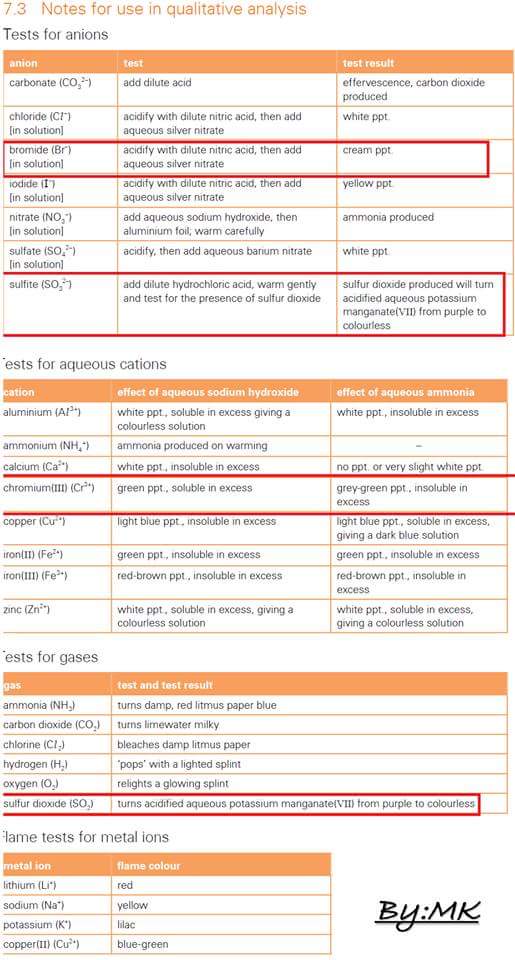Check the SYLLABUS update
NOTES ON UPDATED IGCSE CHEMISTRY SYLLABUS 2016
1. BROWNIan motion
2. ENERGY LEVEL DIAGRAMS
3. Problem with inadequate water supply
4. HYDROGEN AS A FUEL


I collected all headings and RUBRICS with sub headings to organize your thoughts about the new SYLLABUS of igcse ict applications 2016
GOOD LUCK!
Click here Section 6 updated 15-16 textbook


51 questions and their answers….. right to the point no fooling around …… really download the file and read it yourself and you’ll see that I am right….

click and download


New topics that are not in Specimen 2016
Images:
○ adjust the brightness of an image
○ adjust the contrast of an image
○ Adjust the bit per channel
Access and Excel:
○ use validation routines to minimise errors
Graphs and charts:
○ add a second data series to a chart, as necessary
○ add a second axis to a chart, as necessary
○ change the maximum and minimum values of an axis scale to appropriate values
Access:
○ create a data entry form to meet the needs of the audience
○ create a data entry form with all fields included to match the purpose of the task
○ create an appropriate data entry form, including: appropriate font styles and sizes, spacing between fields, character spacing of individual fields, use of white space, radio buttons, drop down menus, highlighting key fields
PowerPoint:
○ place appropriate images on the slides, including: video clips, animated images
○ place sound within a slide
○ use suitable software tools to display the presentation in a variety of formats, including: looped on-screen carousel,
Excel:
○ use conditional formatting appropriately to change display format depending upon the contents of a cell Web page design:
○ insert appropriate objects into a web page including: moving images, sound clips

Consider the following sentence: You and I should have lunch.
Is the correct form of this sentence You and I … or You and me …? This is a common source of confusion in English.
Fortunately, there’s an easy way to decide whether to use I or me in such sentences. All you have to do is drop the word you then try the sentence with I and me one at a time. For example:
I should have lunch.
Me should have lunch.
Clearly the preferred form in this case is I; thus, the original sentence was correct to use you and I.
Here’s another example: He’ll blame you and I. Drop the word you then try the sentence with I and me one at a time, like so:
He’ll blame I.
He’ll blame me.
You can see that the second of these is correct. This means that the original sentence should have been: He’ll blame you and me.
Easy.
On a related note, when using phrases such as you and me, you and I or them and us, it has traditionally been considered courteous to place the reference to yourself last. For example, we prefer:
He’ll ask you and me later.
over:
He’ll ask me and you later.
You want more tips, consider signing up to my email list.
Read those tips and practice them.
Read aloud for yourself for about 15-20 minutes every day. Practice makes perfect. If you don’t know how to pronounce a word, ask a native speaker or check an online dictionary. Most of them have audio files of the most common words available.
You must be logged in to post a comment.